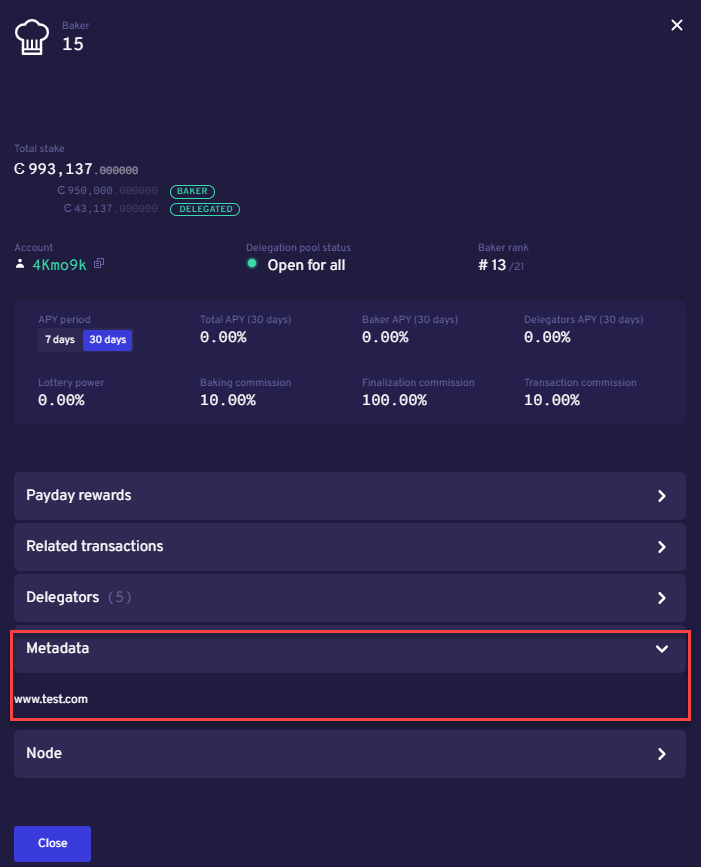Validator management#
A validator is a node that participates in the network by producing new blocks that are added to the chain. There are some recommended best practices around validation, particularly when a validator runs a staking pool. A validator can choose to open a staking pool to which others can delegate some of their stake.
Best practices for validation#
As a validator you should manage your validator node responsibly for the benefit of all users of the blockchain. The recommendations for validators are:
Make sure your node is running 24/7/365 in a reliable place.
Protect your validator keys so that they are not lost or compromised.
Check regularly to make sure that you are not close to the bounding cap for max capital for a validator. If you’re getting close to the max capital, you can split and make another validator to divide the capital.
Open a staking pool. This allows others to delegate stake to you, thus increasing your effective stake and your odds of getting selected to produce a block. You also receive a commission on the delegator’s rewards.
Subscribe to the Mainnet status page and read the release information on Discourse to stay informed about updates and changes that may affect you as a validator, including node software releases and protocol updates. To subscribe on the Mainnet status page click Get updates, choose your preferred communication medium, then choose whether to get all updates or only updates for specific products and click Subscribe
Recommendations for staking pool owners#
If you are running a staking pool, you are responsible for managing your pool to maximize returns, both for yourself and those who have delegated stake to your pool.
To help potential delegators with their choice, it is a good idea to create a website with information and add this URL to your staking pool configuration. The information you need is available on CCDScan , read this staking article for more details on and the tool. Through it, potential delegators can read about the pool, leading to a better understanding of your goals. Having a URL on your staking pool configuration is not required.
Research a staking pool#
Before delegating stake to a staking pool, it is important to research the pool and get an idea of performance and how it is managed.
The first thing to check before delegating stake to a staking pool is the URL for the staking pool. This is information that the validator can provide about the pool. It is not required that the validator provide this, but recommended. You can find the URLs on CCDScan, under the Metadata section of a validator.

Make sure that the pool isn’t close to having too many delegators or close to max capital. Another indicator of good management is reliability, such as whether the node is upgraded to the latest version.
Once you have made a delegation, it is a good idea to monitor validator performance regularly and adjust if needed.
CCDScan#
The tool for both validator management and research is CCDScan. For more information regarding the tool, read this article.
